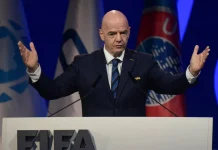The next FIFA World Cup up for the series is to be held in Saudi Arabia in the year 2034, which will be a landmark year for Saudi Arabia and football lovers the world over. However, this has begun discussions globally, especially on whether the conservative autocratic norms of the Saudis can be reconciled with the happy-lingering spirit that normally accompanies the World Cup.
It is famous for bringing fans of all different cultures and backgrounds to this land, with an environment of festivity, freedom, and world unity—values that run sharply in contrast to the conservative tenets that characterize Saudi society.
The official religion of Saudi Arabia is Islam, with approximately 90% of the population being Sunni Muslims, primarily following the Hanbali school of jurisprudence. This article discusses some potential conflicts between Saudi Arabia’s cultural framework and expectations surrounding hosting such a global, dynamic event.
Cultural and Religious Framework in Saudi Arabia
Saudi Arabia is Wahhabite, which is an extreme, strict version of Sunni Islam that defines all aspects of life and includes legislation, social habits, and gender segregation in dress codes. The society has strict public behavior and prohibits alcohol consumption, especially when international sports events come along. The public will not be able to see people kissing and hugging, as is usually the case in the celebratory ambiance of the World Cup.
While Shi’a Muslims represent a minority (about 10% of the population), they generally practice their faith freely, albeit within a framework that does not officially recognize their traditions. Tensions between Sunni and Shi’a communities have occasionally led to violence but are not pervasive in daily life. Such norms could pose problems in hosting the multicultural, festive, and often liberal atmosphere that the FIFA World Cup brings.
The Diversity of the FIFA World Cup
The FIFA World Cup is more than a football tournament; it is a global celebration. Fans from over 200 countries travel to the host nation, bringing their traditions, behaviors, and expectations. Alcohol consumption, parties, concerts, and unrestrained displays of joy are hallmarks of the event. LGBTQ+ rights, freedom of expression, and inclusivity are also key themes in modern international sports.
Gender Segregation and the Role of Women in Society
One major issue is gender segregation. While Saudi Arabia has taken steps toward gender equality, such as allowing women to attend football matches in stadiums, restrictions still exist. Many World Cup visitors will expect freedom of interaction between genders—a norm in most participating countries. Much emphasis should be placed on the role of women in the economy; they are 45.4% of the global workforce. They are more entrepreneurial and play a great role in generating household incomes, especially in rural areas where they are involved in managing agricultural production.
Additionally, women fans from different parts of the world can bring in local standards through their dress and conduct. For example, though FIFA promotes diversity and inclusion, Saudi Arabia follows a dress code that might lead to misunderstanding or even conflict.
Alcohol Consumption
Another critical issue is the availability of alcohol. Football fans usually associate the sport with beer culture, and most fans would expect to find access to alcoholic beverages in a stadium or fan zone. Saudi Arabia, however, completely prohibits alcohol consumption, sale, and importation.
While Qatar could do the same during the 2022 World Cup, its more stringent approach would make Saudi Arabia lose even more fans. Temporary permissions or separate areas for alcoholic beverages may be considered; however, such policies could create an uproar in the conservative circles of the kingdom.
LGBTQ+ Rights
There are also some issues over LGBTQ+. FIFA, which tout’s inclusiveness, began an initiative calling for action for LGBTQ+ rights within football. The law within Saudi Arabia states homosexuality as a crime punishable with some harsh penalties of imprisonment with corporal punishment.
The way Saudi Arabia handles the issue will be under significant scrutiny. International fans and activists will most likely seek guarantees for the safety and acceptance of LGBTQ+ during the tournament. Any hostile perception will blemish the reputation of the event and Saudi Arabia’s image globally.
Public Celebrations and Entertainment
Public celebrations, concerts, and social gatherings are elements of the World Cup. However, in Saudi Arabia, public behavior is strictly governed, limiting freedom of speech and movement. The majority of the practices common for fans, such as public dancing, singing, or displays of affection, conflict with local customs.
While Saudi Arabia has recently opened its doors to concerts and entertainment events, they are normally conducted within controlled environments. The freestyle, spontaneous festivities characterizing World Cup celebrations might be curtailed in the process, thus adversely affecting the fan experience in general.
Media Coverage and Global Perception
It will be unprecedented media attention witnessed by the Kingdom of Saudi Arabia each time it hosts the FIFA World Cup. On the same note, this might make the kingdom present its rich culture and reformation. In this process, however, the human rights records, gender policies, and minority groups in the country will be under the lens.
Fans and media organizations will surely criticize any restrictions that appear oppressive. This criticism may overshadow the good aspects of Saudi Arabia’s hosting efforts, making the government face a public relations challenge.
The Economic and Political Stakes
Saudi Arabia is using the plan known as Vision 2030 which envisions the country hosting the World Cup as a method of changing its economy and improving its international status. The kingdom has poured a lot of funds in relation to sporting activities, showbiz, and tourism to portray an image of a new world kingdom.
However, bringing together the major and diverse cultures of the world for the tournament may present some conflict with these objectives. The overbearing quest of the kingdom to live up to global standards and modernity on the one hand while trying to uphold the Saudi identity on the other shall be a balancing factor for Saudi Arabia’s future vision.
Conclusion
The 2034 FIFA World Cup will be a unique tournament, but like all tournaments, it will have its share of complications. The highly conservative southeastern kingdom has different cultural and religious perceptions of its people compared to the joyous occasion represented by the World Cup. The future debates on the relationship to gender, alcohol consumption, homosexuality, and public holidays will remain important for guaranteeing the success of the tournament.












